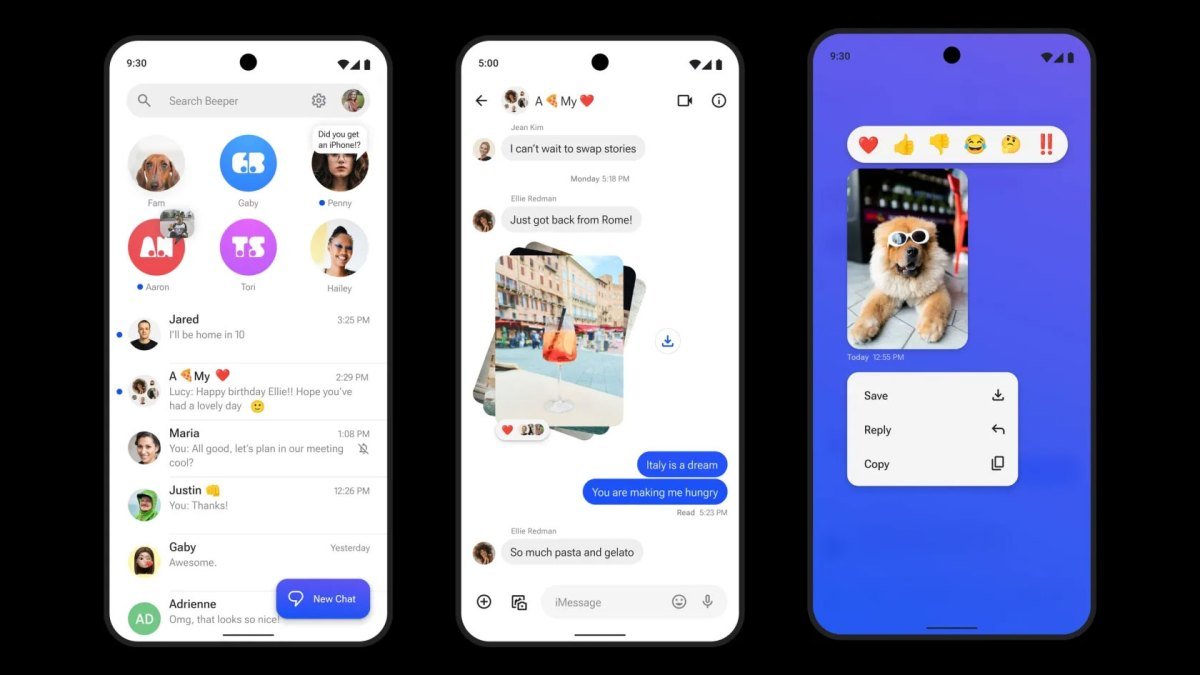The United States Department of Justice has filed a lawsuit against Apple on Thursday, citing a specific incident involving the tech giant’s battle against Beeper as an example of their alleged anticompetitive behavior. Last year, Beeper, a startup founded by Pebble smartwatch creator Eric Migicovsky, attempted to bring Apple’s coveted iMessage platform to Android users, only to be met with resistance from the company. This dispute has now become a focal point in the DOJ’s case against Apple.
The DOJ referenced the dispute in its lawsuit as an example of Apple controlling “the behavior and innovation of third parties in order to insulate itself from competition.”
Beeper’s mission to provide end-to-end encrypted iMessage chats to Android users through their app was met with a game of cat-and-mouse from Apple, which ultimately resulted in the startup abandoning their efforts. Despite their success in reverse-engineering the iMessage protocol and creating a functional app, Apple consistently blocked Beeper’s workarounds, hindering their ability to provide the desired service.
The companies’ ongoing dispute caught the attention of a bipartisan group of U.S. lawmakers, who urged the DOJ to investigate Apple’s treatment of Beeper.
“Recently, Apple blocked a third-party developer from fixing the broken cross-platform messaging experience in Apple Messages and providing end-to-end encryption for messages between Apple Messages and Android users,” the DOJ complaint reads. “By rejecting solutions that would allow for cross-platform encryption, Apple continues to make iPhone users’ less secure than they could otherwise be.”
Apple’s justification for their actions was based on concern for user security and privacy, with the company stating that Beeper posed risks such as metadata exposure and potential for spam and phishing attacks.
This battle between Apple and Beeper has also captured the attention of FCC commissioner Brendan Carr, who requested an investigation into Apple’s behavior in regards to their Part 14 rules on accessibility, usability, and compatibility.
The DOJ’s lawsuit against Apple encompasses more than just their handling of the Beeper app, accusing the company of actively working to protect their smartphone monopoly by hindering the success of cross-platform messaging apps and rival smartphones.
On top of this, the lawsuit also alleges that Apple has intentionally suppressed smartwatch cross-platform compatibility, an issue that Migicovsky has dealt with previously with his former company, Pebble. The DOJ notes that in 2013, Apple allowed iPhone users to connect with third-party smartwatches, but when they launched the Apple Watch the following year, they began limiting third-party access to key APIs, giving their own watch a competitive advantage.
The department also claims that Apple prevents iPhone users from responding to notifications using third-party smartwatches, instead providing access to limited APIs that do not allow for the same functions as their own Apple Watch.
The lawsuit even goes as far as accusing Apple of “copying the idea of a smartwatch from third-party developers.”
For more information on the antitrust lawsuit against Apple, click here.








